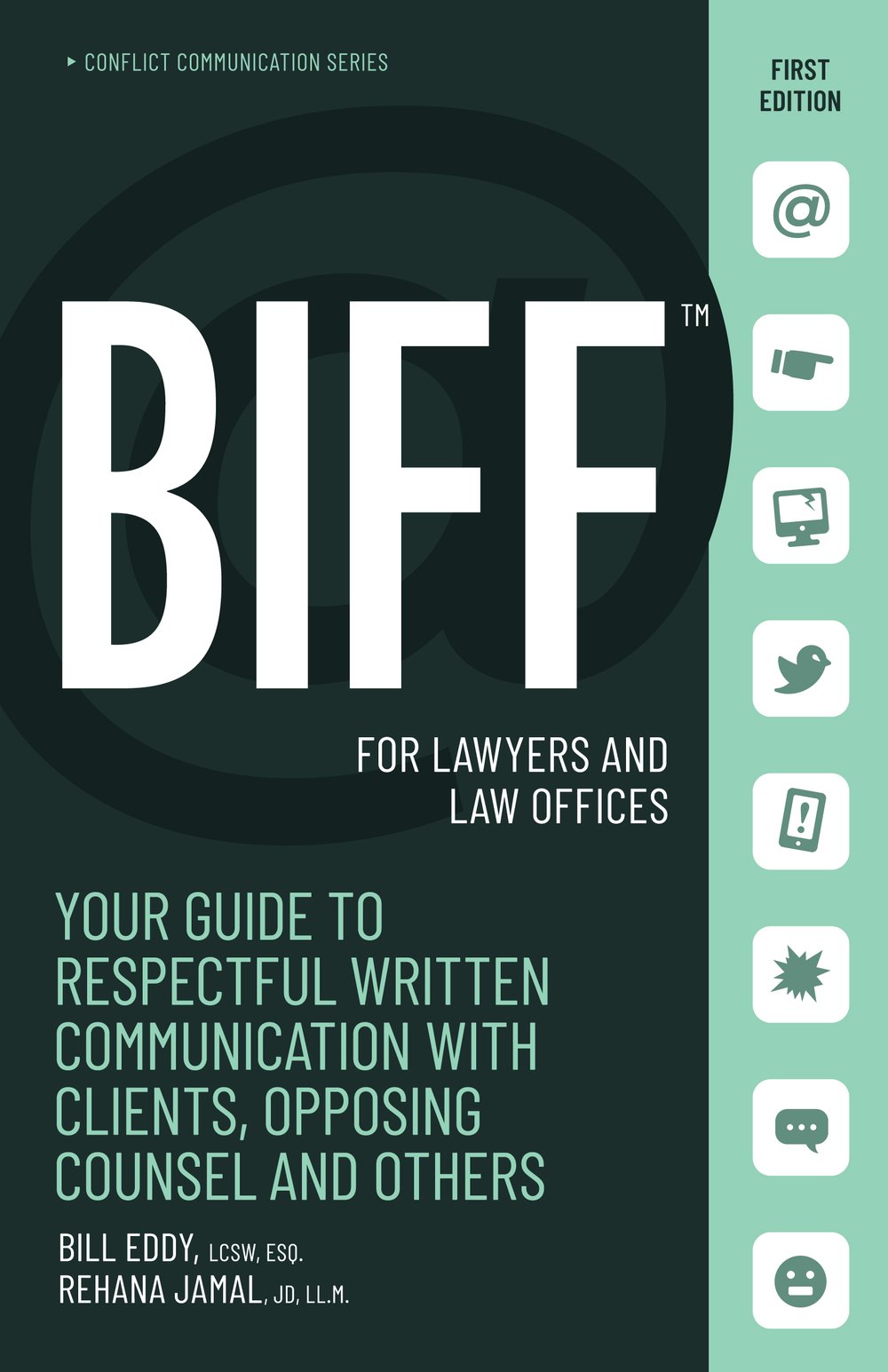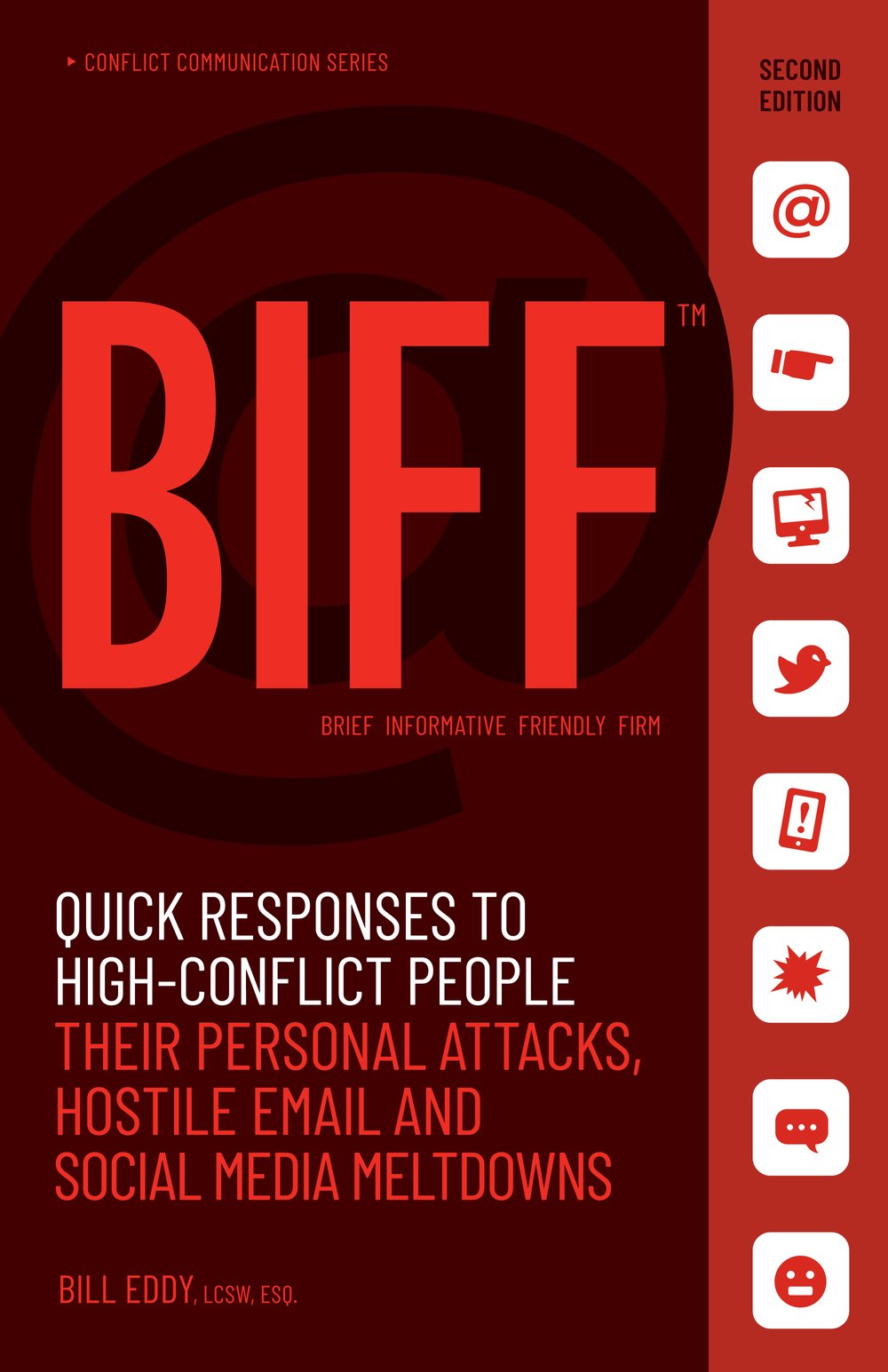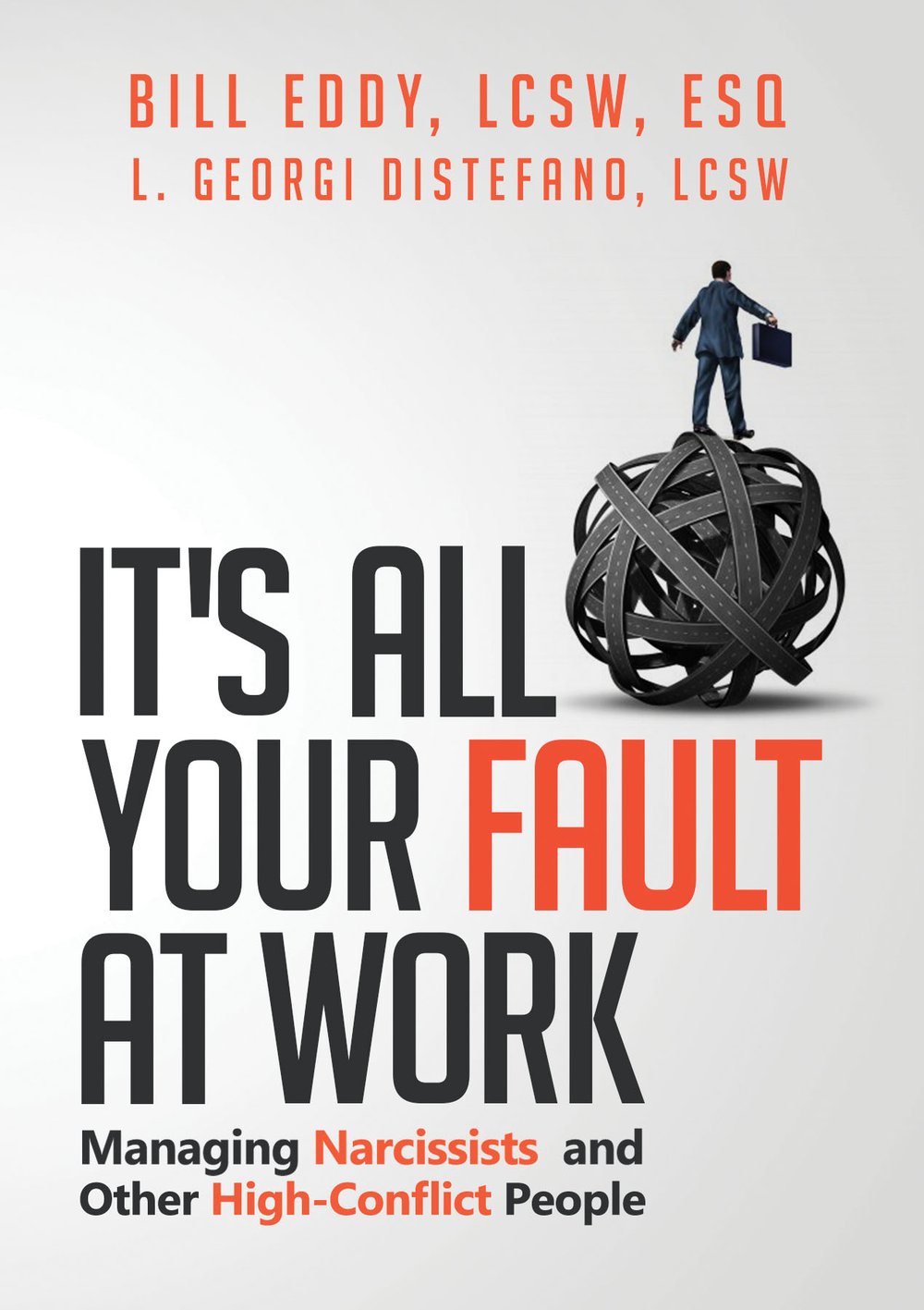BIFF for Lawyers and Law Offices
Your Guide to Respectful Written Communication with Clients, Opposing Counsel and Others

"BIFF is simple, powerful, and impactful. This book should be mandatory reading for the entire legal industry.Once you start to use BIFF, it becomes an antidote for caustic interactions.You can’t stop the poison, but BIFF gives you the antidote to counteract it safely.Read it, apply it, and start to use power of BIFF.” —Attorney Steve Riley, Atticus shareholder and podcast host of Great Practice. Great Life.
Use BIFF to Communicate with Your Ex's Blaming, Accusing and Taunting Texts and Emails
This book provides a simple and proven method for lawyers and staff to use in ethically responding to hostile communications, correcting misinformation by others, and initiating productive correspondence. The BIFF Communication method can be used by all law office personnel (paralegals, administrative assistants, receptionists, and others), with 30 sample responses to common situations involving hostile or misinformed emails, text messages, and other forms of communication. BIFF stands for Brief, Informative, Friendly, and Firm.
The BIFF Communication method can also be taught to clients to help them write friendly and concise
responses in their legal cases, saving lawyers time and reducing the escalation of unnecessary conflicts in their cases. This book explains how to
coach office staff, clients and their family members to use the BIFF Communication method,
including ten easy key questions to ask when reviewing their correspondence.
While this method is designed primarily for written communication, this
approach can also be used in verbal conversations, to be efficient and respectful.
The book is divided into five sections:
- Learning the BIFF method
- Correspondence with clients
- Correspondence with colleagues
- Correspondence with staff and between staff
- Coaching staff and clients in the BIFF method.
Each sample scenario provides a hostile
correspondence received by the lawyer and/or staff member; then gives a tempting
response which is not quite a BIFF (analyzed using the BIFF Checker); then
gives a communication that is a BIFF.



